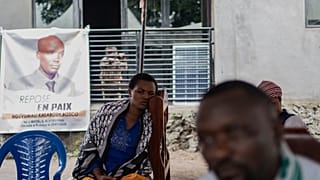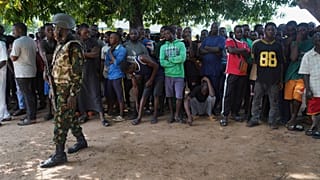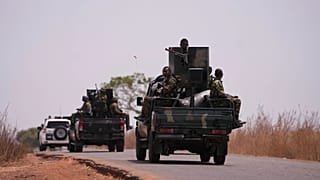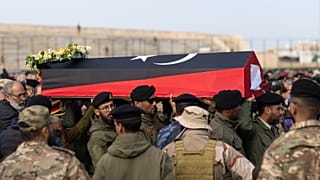Libya
Military deminers are clearing mined areas in the Libyan city of Benghazi, where loud blasts from explosives and booby traps have become an all too familiar sound.
Mines planted during more than three years of war in Benghazi are taking a high toll on under-equipped deminers and residents trying to return to districts where protracted battles once took place.
“One of the residents of the building called and asked if one of the mines had exploded in the building and if a woman had passed away, but I told him I hadn’t heard about it. When I arrived and asked, they told me it was Mona al-Ebeidy from the first floor”,Mohamed Al-Ruwayi a local resident said.
Military engineers striving to clear the explosives lack mine detectors and are working with basic tools and their bare hands.
“Thank god we have completed some of the work, but some of it has yet to be completed due to a lack of resources, bad circumstances and obstacles”,said Engineer Tarek Farkash.
Their task is painstaking and extremely dangerous: 50 have been killed and 60 wounded, according to a military source.
The war in Benghazi erupted in 2014, when Libyan commander Khalifa Haftar began battling Islamists and other opponents, part of a broader conflict that spread in Libya after the fall of Muammar Gaddafi seven years ago.
Haftar’s Libyan National Army took a final holdout from its rivals in December, but demining can take months. Souq al-Hout came under the LNA’s control early last summer and is still far from being cleared.
Despite warnings from the military and indications of mined areas scribbled on walls, some long-displaced residents impatient to rebuild their lives have gone home, with deadly consequences.
Souq al-Hout resident Mohamed al-Ruwayi, whose building had been cordoned off by the military because of the risk from mines, described how a university teacher had recently returned to visit her home with her husband and was killed by a mine as she was leaving.
Farkash said at least 49 civilians had been killed and 38 injured, with the real number higher as not all cases had been accounted for.
Benghazi’s Al Jalaa hospital has been dealing with such casualties since February 2016, when Haftar’s forces broke a military deadlock, taking control of the residential district of Laithi. The youngest casualty brought to Al Jalaa was three years old and the oldest 75, a hospital official said.











01:02
Italian officials on trial over deadly 2023 migrant shipwreck
02:19
Anthony Joshua pays tribute to friends killed in Nigeria car crash
11:16
Global aircraft parts shortage grounds African airlines [Business Africa]
01:25
Guinea: Claude Pivi, ex-security chief convicted over 2009 stadium massacre, dies
01:02
Nigeria: Death toll rises to 50 in Niger state market attack
01:16
A displaced grandmother and her grandson burn to death in Gaza tent fire